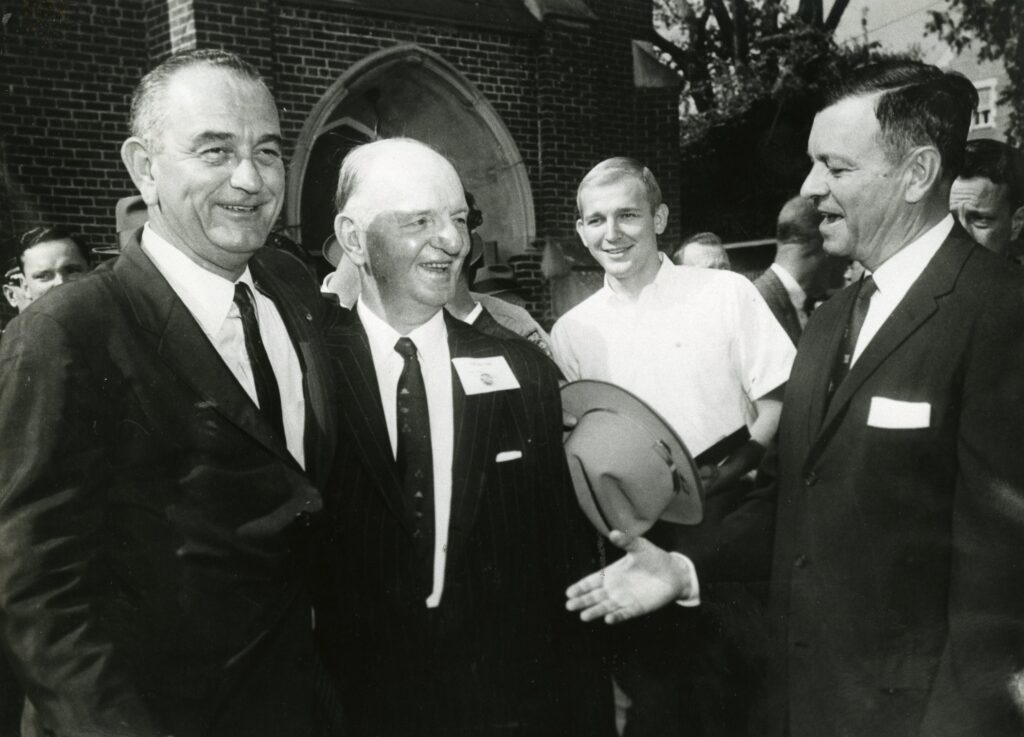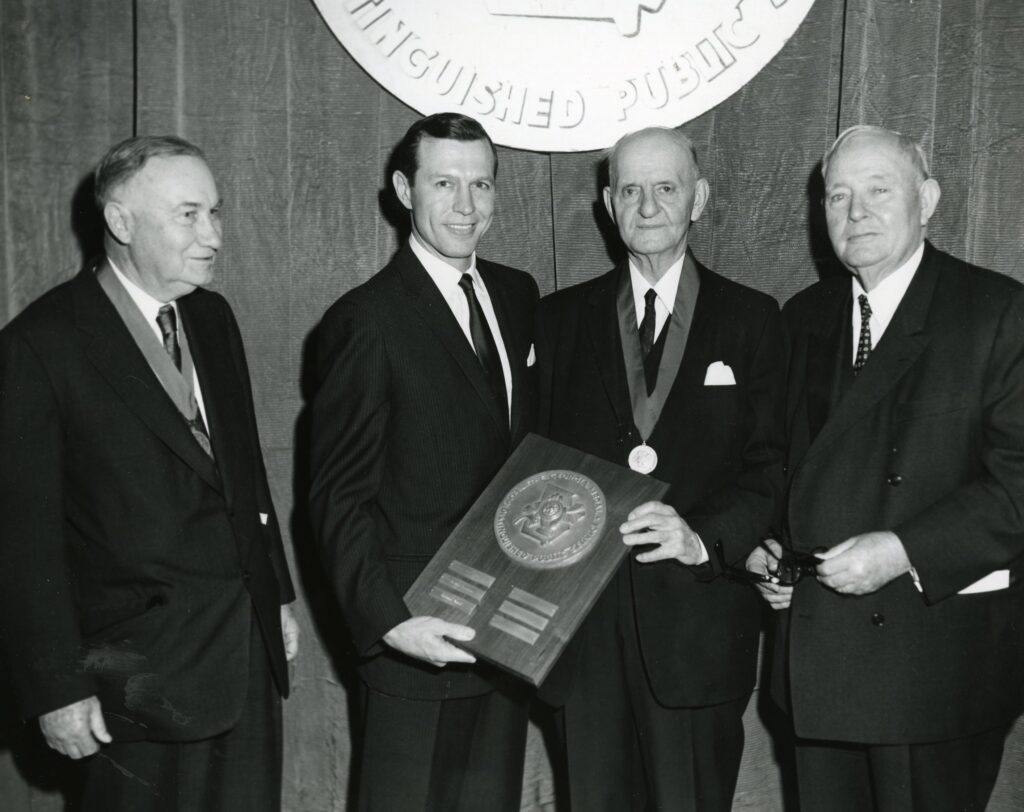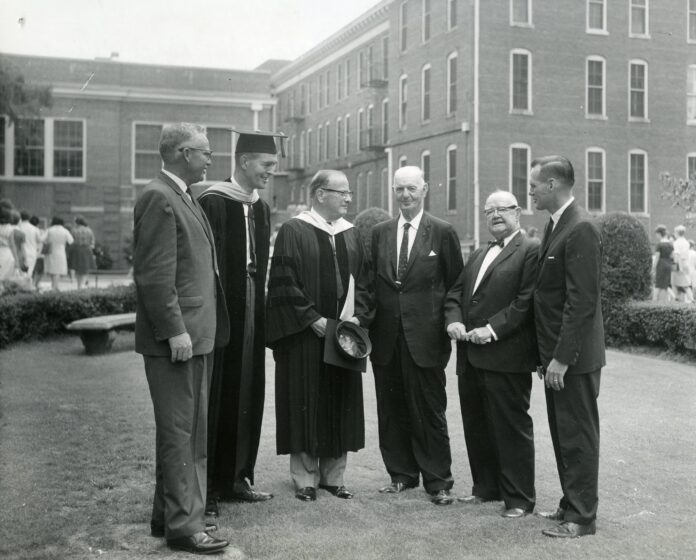
Carl Vinson was a powerful yet humble man who made waves during his long-lasting congressional career. The Mercer University alumnus started his career as a lawyer in Baldwin County and went on to become a leader in national defense and security. Here’s how he became a Mercer Legend.

Carl Vinson
Mercer connection: Mercer Law School alumnus
Years at Mercer: 1902 graduate
What he did: Carl Vinson was born in Baldwin County in 1883 and attended Georgia Military College before studying at Mercer Law School. Following his graduation in 1902 at age 18, he practiced at Milledgeville firm Hines and Vinson. He served as Baldwin County prosecutor for three years; in the Georgia House of Representatives for two terms, starting in 1909 and as speaker pro tempore for his second term; and as Baldwin County Court judge for two years.
In 1914, Vinson became the youngest member of Congress when he took the 10th Georgia district seat in the House of Representatives right before his 31st birthday. A lifelong Democrat, Vinson is credited with transforming the Armed Forces and developing the modern Navy. Beginning in 1930, he was the chair of the House Naval Affairs Committee for 16 years and the House Armed Services Committee — a merger of the House Naval Affairs Committee and the Military Affairs Committee — for 14 years.
Named for Vinson are the Navy’s third nuclear carrier, the U.S.S. Carl Vinson; Vinson Massif mountain range in Antarctica; the Carl Vinson Institute of Government at University of Georgia; and Vinson Highway in Milledgeville. Amid his national efforts, Vinson stayed committed to his Georgia constituency. He established Robins Air Force Base, the Veterans Administration Hospital in Dublin and the Federal Building in Macon.
Vinson had been married to his wife, Mary, for 28 years at the time of her passing from an extended illness in 1949. At his retirement in 1965, Vinson had served the House of Representatives for 50 years, the longest continuous-serving congressman at the time. He lived on his family farm in Milledgeville for the remainder of his life and passed away in 1981 at age 97.
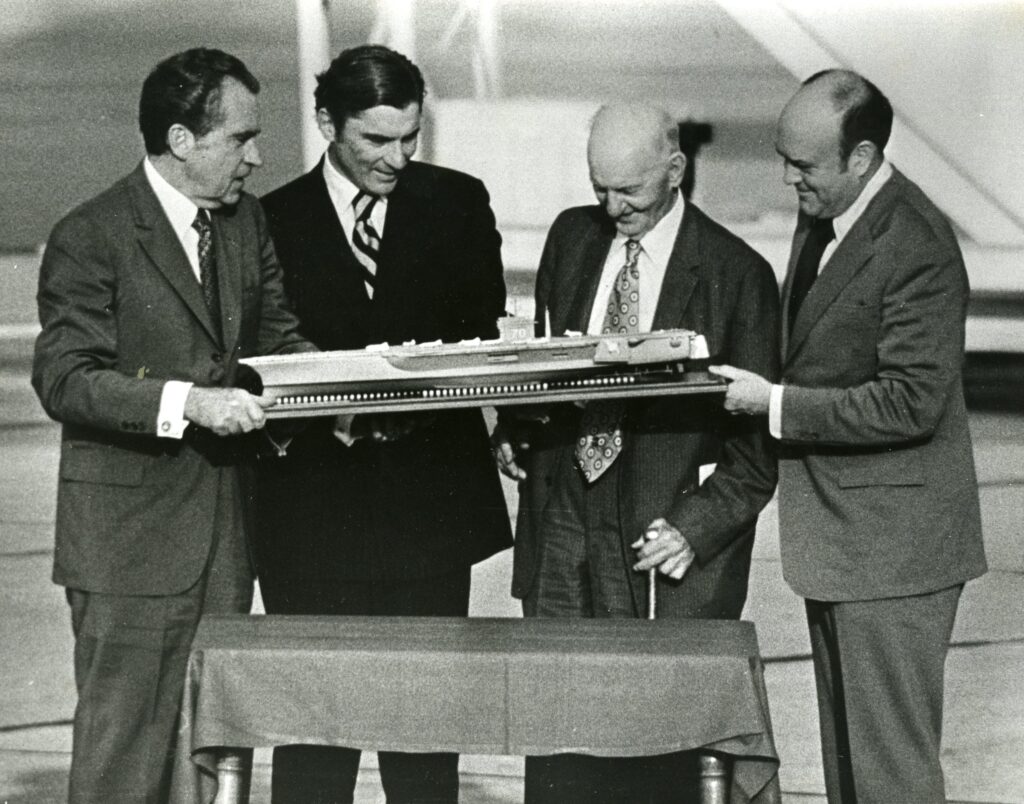
Why he’s a legend: Vinson dedicated his life to serving his state and nation and was a leader in national defense and security. He worked with nine presidents during his career and became a trusted advisor and confidant to each. Lyndon B. Johnson awarded him the Presidential Medal of Freedom in 1964. Following his retirement, Vinson served as a consultant and friend to the presidents that followed.
“Carl played a unique role in the public affairs of this country, with a record of service that has never been matched. His wisdom and counsel made him a giant among his peers,” former President Jimmy Carter said upon learning of Vinson’s death in 1981.
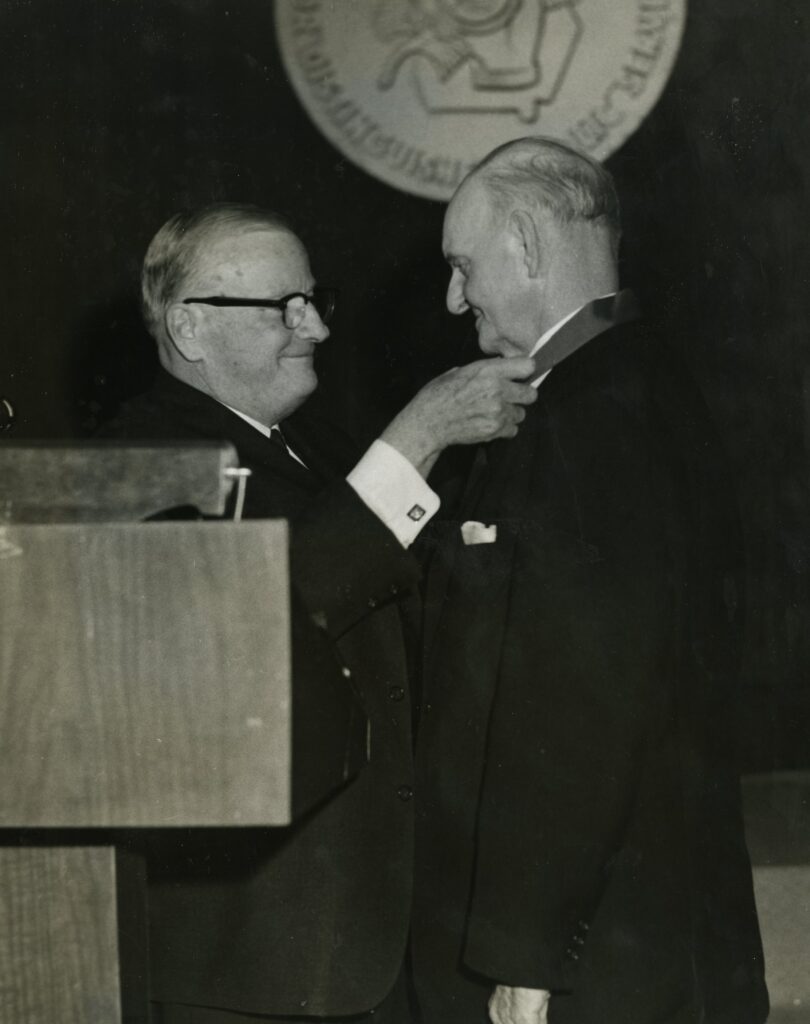
Vinson’s expertise, tactful strategy, wit, work ethic and patriotism earned him many nicknames. He was “Mr. Defense” and “Swampfox” to his colleagues, the “Admiral” to the military community and “Uncle Carl” to Georgians. He has been called the “patriarch of Armed Forces,” “one of the world’s most powerful men” and the “principal architect of the nation’s defense structure.” In his legislative work, his “ability to be domineering without offending” led him to be highly regarded and trusted by all those he encountered. But in addition to his tough and tenacious reputation, he was also humble and kind.
“Vinson’s integrity as a man had earned him the respect of his associates, but his personal loyalties had earned for him the love of his people,” Mercer President Rufus Harris said in 1983.
Before joining Congress in 1914, Vinson had never been to Washington, D.C. He hated to fly and only left the country once, in the 1920s to inspect the Panama Canal. Despite being in politics, he shied away from the public spotlight and was reluctant to fanfare. He was recommended for higher positions, including secretary of the Navy and secretary of defense, but he turned them all down, believing he could make the most impact in his current role.
“Carl Vinson dedicated his life to America’s strength, security and freedom. Carl Vinson’s story is, in large part, the story of America’s national security in the 20th century,” said former Sen. Sam Nunn, Vinson’s great-nephew, in 2004 when a biography of Vinson was published by Mercer University Press.
Quotable: “As a young man, my one great ambition was to become a lawyer, and one of the most important decisions I have ever made in my life was to attend Mercer Law School. I can truly say whatever success I have attained in life can be attributed in large measure to the sound foundation in law which I received in this school of law at Mercer University. This school’s beneficial influence upon the judicial and political life of the South and the entire nation has been profound and far-reaching.” — Carl Vinson, during a joint celebration in Macon for the 100th anniversary of the founding of Mercer Law School and his 90th birthday in 1973
Mercer Legends is a series that highlights iconic figures who left a lasting impact on the University and its faculty, staff and students, as well as the community.
